General
Another Double win for African Film and Oral Literature
Published
11 years agoon
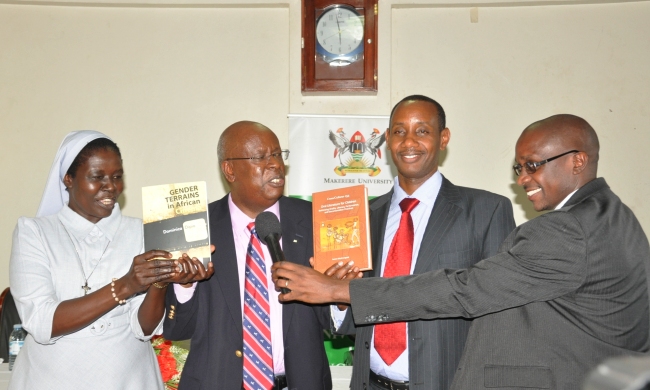
The month of October 2014 ended on a spectacular note when the College of Humanities and Social Sciences (CHUSS) held a double book launch for two of her enormous army of prolific academics and writers. The audience, most of who had to brave the afternoon downpour on 31st October 2014 to make it in time was kept entertained by Mengo Senior School students’ recitals of Kanemu Kanabiri, Mpenkoni and many other traditional play songs as derived from Dr. Aaron Mushengyezi’s Oral Literature for Children book. On the other hand Sr. Dr. Dominica Dipio’s book Gender Terrains in African Cinema left the audience more appreciative than ever of the power mothers wield over the African film industry and society in general.
In her enthusiastic welcome address Dr. Susan Kiguli, Head-Department of Literature, CHUSS commended everyone for sparing time to attend the launch, especially the Chief Guest Mr. James Tumusiime-Chairman of Fountain Group and her own aunt Mrs. Sheila Goa who at 86 years of age was still sharp and sprightly. She further thanked Mr. Tumusiime for not only accepting her invitation but also actually taking time to read the books, “Our unanimous response was we are going to have a Guest of Honour who has actually read the books” she said, much to the amusement of the audience, before hastening to add “Of course we did not expect less but we are also happy that our judgment was as our students say ‘spot on’.”
She thanked the African Humanities Program (AHP) supported by the American Council of Learned Societies (ACLS) and Carnegie Corporation of New York (CCNY) for ensuring that Dr. Aaron Mushengyezi and Sr. Dr. Dominica Dipio published their books. “I want to welcome and warmly congratulate our authors for this landmark achievement and for ensuring that our Department’s name stays on the sparkling pedestal,” said Dr. Kiguli, directly addressing the authors. She also commended Prof. Austin Bukenya and Dr. Consolata Kabonesa for their moving reviews of Dr. Mushengyezi’s and Dr. Dipio’s books respectively, as published in the New Vision newspaper of 30th and 31st October 2014.
Associate Professor Aaron Mushengyezi is the Dean-School of Languages, Literature and Communication, CHUSS, a book author and editor who has won several awards from the International Scholarship Programme of the Ford Foundation, the African Humanities Program (AHP). His latest book Oral Literature for Children: Rethinking Orality, Literacy, Performance and Documentation Practices seeks to take the oldest form of communicating traditional cultural values and information to the next level.
“We have recognized the value that these texts for young people play. They embody the cherished cultural values of hard work, respect for each other, and charity as well as numeracy skills. These texts also have a role to play in promoting social relationships and sometimes even teaching children their gender roles and relationships, which help our children to stay focused on what society expects of them as mature men and women” shared Dr. Mushengyezi. He further intimated that the current uncertainty surrounding our sexuality and whom we should marry or not could be attributed to an extinction of cultural values which were previously handed down by traditional oral literature.
Dr. Mushengyezi emphasized the need to work more with culture-based industries so as to get the traditional texts to provide educational value in our schools. He commended Mr. James Tumusiime whose efforts through Fountain Publishers and Igongo Cultural Centre have gone a long way in promoting local cultural practice and conservation. He challenged the Government of Uganda through the Ministry of Gender, Labour and Social Development to invest in the promotion of culture-based industries through support to cultural tourism and traditional resources marketing. He also challenged Mr. James Tumusiime to consider having local publications of the books done through Fountain Publishers so as to reduce on their cost and improve their availability. He paid special tribute to his wife, children, family and Makerere University for the support that had enabled him complete the book.
Dr. Okot Benge is a Lecturer in the Department of Literature, CHUSS whose writing also neatly straddles both gender and oral literature aspects. As the moderator for this particular session of the day, he sent the audience doubling over when he recollected Prof. Austin Bukenya’s experience, who when asked for his publications prior to promotion to the rank of Senior Lecturer returned with a sack load of books, and even inquired if those would suffice! The evergreen Prof. Bukenya took it all smilingly and on assuming his position at the podium, and as has now become his pre-address tradition, started off with a recital of William Wordsworth’s 19th Century poem My Heart leaps when I behold.
He profusely thanked Dr. Aaron Mushengyezi for “bringing back his youth” through his book, whose review he had felt very privileged to write. Recollecting two childhood memories; i) Njabala – the last folktale his late mother shared with him before her passing and ii) Rosa Nyanzira – his first girlfriend whose storytelling charmed the then four year old Austin, Prof. Bukenya commended the author for exquisitely blending these special memories into one awe-inspiring publication.
Prof. Bukenya shared that he felt both gratified and shamed when he read the book, for in one shot, Dr. Mushengyezi had struck down the targets that he (Prof. Bukenya) had been taking aim at since 1968, when as a graduate student he was assigned the task of systemizing oral literature at Makerere under the guidance of Pio Zirimu. “You brought this process to a new level by showing us what can be done all the way from collection, from transcription, from translation to interpretation, and this starts a very useful scholarly discussion,” said Prof. Bukenya.
He shared that this book brought out the richness of our multilingual culture “This book really enables us to share and if you want to appreciate it, read it in the original text and only read the translated one thereafter” he said. He advised that reading the book this way, we would gain a greater appreciation of how much similarity our languages share. “You have given us a comparative approach of the various rhymes which we can find in our languages” added Prof. Bukenya. He thanked Ms. Emily Drani, Executive Director, Cross-Cultural Foundation of Uganda for promoting the Nation’s non-tangible culture. “The Arts that make us human are not useless and I will say that loudly and proudly” concluded Prof. Bukenya.
Associate Professor Dominica Dipio the second author of the day is a former Fulbright Research Fellowship and African Humanities Program Fellow who has initiated and coordinated a number of projects such as the Makerere-Bergen Folklore project. Dr. Dipio is a videographer with thirteen titles of both full and short length films to her credit. She has over thirty academic journals and book chapters to her name, her most recent publication being Gender Terrains in African Cinema.
“I came into contact with Film as a Graduate student at the Pontifical Gregorian University in Rome in 1999. At that time it was being taken as a window into the African world; that is for the outsider and not for the Africa,” said Dr. Dipio in giving a brief background of her inspiration. She defended her choice of Francophone films dating from 1970-2000 for her research because France’s colonial policy supported cultural engagement, which led to a flourishing film industry. “However, a similar process as I have done could be undertaken by students and scholars in East Africa because filmmaking in the region is becoming a very serious engagement” she challenged.
In her analysis of the films, she took inspiration from one African filmmaker who observed that “Evolution is not possible without women’s active involvement and that is especially true of the Arab world. The Arab man has given all he can and his achievements aren’t great. Maybe the Arab woman can reinvent the world… when I look at my mother; I see that her intelligence is intact. She hasn’t had a chance to use it” she read in quoting. Dr. Dipio’s Gender Terrains in African Cinema offers a logical analysis of whether these filmmakers and critics actually “walk the talk” in their films. She was therefore happy to discover that the filmmakers made commendable efforts at representing women and gender issues in a way that challenged the status quo.
“Since political and administrative powers lay mostly in the hands of men, women’s emancipation can only be effective with the active participation of men alongside the women; men in this respect need to equally be the target of male and female discourses. The turnaround made by mainstream men to join the direction of struggle for women’s emancipation against gender based violence always led to very positive results“observed Dr. Dipio. She recognized Ms. Gorettie Bamwanga among many others in the audience for their exceptional role in mentoring young women. Ms. Bamwanga is the author of Footmarks – a book profiling 100 pioneering Ugandan women.
The moderator Dr. Okot Benge was at it once again while introducing Dr. Consolata Kabonesa, Dean-School of Women and Gender Studies (WGS) and reviewer of Gender Terrains in African Cinema. Describing her as the “most amiable scholar I know who is widely published on the subject of women and gender studies”, Dr. Benge managed to elicit that warmth from Dr. Kabonesa that literally made waves as it radiated across the room. “When I started reading the book, all I could keep saying to myself was wow! Dr. Dipio deserves to be in the School of Women and Gender Studies because she tackled gender issues so well” enthused Dr. Kabonesa in her opening statements.
Dr. Kabonesa commended Sister Dipio for making the often-silenced girl child talk speak out through her well scripted narratives in the book. “We don’t see this in the film but in Sr. Dipio’s analysis of the gender terrains in cinema” she observed. She commended Dr. Dipio for highlighting the vital role played by mothers in streamlining gender identities and leveling out gender inequalities in society, “it is we the mothers who actually make these young men who they are and so if we start early with them, we will be able to advance this cause.” She further noted that Sr. Dipio attains a number of goals by representing the various categories of women, engaging them in discourse and critiquing their positions through the lenses of class and age range. “This she attains by weaving in and out of this generation to the other, this class to the next which makes for very interesting reading. You need to read it” commended Dr. Kabonesa.
Dr. Patrick Mangeni is not only the Head-Department of Performing Arts and Film (PAF), CHUSS but also a recognized author of books, poetry and prose. As the country grappled with averting the rapid spread of the HIV scourge in the late 1980s, Fountain Publishers came up with the FFF (Fact, Fiction and Facilitation) project to reach out to the youth. To help develop the Fiction component, Fountain Publishers turned to Makerere University and Dr. Mangeni was one of the authors who tremendously contributed to this project.
Introducing the day’s Guest of Honour, Dr. Mangeni commended Mr. Tumusiime for not only supporting Ugandan and regional authors but also helping to revitalize the University Bookshop in 1996. “We appreciate the Guest of Honour for being innovative and not being afraid to take on challenges. You know what the publishing industry is like but I can proudly say that Fountain Publishers is the leading publisher in this country and it has not been by mistake but by effort, determination and being able to take on risky ventures,” extolled Dr. Mangeni.
The Guest of Honour Mr. James Tumusiime despite the praise heaped upon him managed to make to the podium and graciously thank the Literature Department for honoring him with the invitation. He chose not to bask in this limelight alone but rather chose to share it with his Publishing Manger-Dr. Tom Tibaijuka, and Wordsmith and Editor-Mr. Julius Ocwyino among other Fountain Group staff present. He expressed his delight at being associated with Makerere University Authors especially the day’s guests; Sr. Dr. Dominica Dipio-who has relentlessly contributes to Fountain Publishers’ Madi publications and Dr. Aaron Mushengyezi who co-edited the bilingual Runyankore/Rukiga-English Dictionary.
“I wish to thank you the two authors for elevating seemingly simple subjects of folktales and cinema to the intellectual realm of scholarly work and I hope they are going to trigger debate and discussion so that we see more and more books tackling these important subjects” remarked Mr. Tumusiime. To illustrate the important role played by mothers in African society, Mr. Tumusiime drew inspiration from Rwanda during the era of Kingdoms where a King never took to the throne without the presence of a mother. Similarly he reflected on the example of Ankole where the King was kept in check by a mother’s belt, which if used to sound the royal drum meant that the King had to commit suicide.
Commenting on the current Sciences versus Arts debate, Mr. Tumusiime labeled as “saddening” the current disinformation about the role played by humanities in societal development. He urged scholars to create a lobby group and work with the media to request for an audience with the leadership. “There is science that can develop and liberate our economies but we cannot neglect our own culture, thinking and humanities, and sacrifice them at this altar of science” counseled the Guest of Honour. “We all aspire to be like the developed countries but wherever you have Isaac Newton being celebrated, there is Shakespeare on the side and although science has advanced over the years, Shakespeare is still with us” he said to resounding applause. “And so let us contextualize this debate properly” added Mr. Tumusiime.
He commended Ms. Emily Drani and Artists from the Margaret Trowell School of Industrial and Fine Arts (MTSIFA), CEDAT for their contribution to the successful establishment of the Igongo Cultural Centre, Mbarara. “The museum (centre) was part of that expression of another form of delivering content. Museums and cultural tourism in the world have an annual turnover of 1trillion Dollars compared to Nature tourism. So culture, literature, cinematography and museums are very important assets for this country and we should nurture them” urged Mr. Tumusiime.
Dr. James Ocita a Lecturer in the Department of Literature moved the day’s vote of thanks and commended Fountain Publishers and Mr. James Tumusiime for improving the reading culture in Uganda. He also commended the Fountain Group for setting up the Fountain Living Youth Series which had mentored a number of young writers such as him and honed their writing skills. He thanked The New Vision, Makerere University, Mengo Senior School, FEMRITE and other entities and individuals for making the launch a success. The day’s proceedings were ably emceed by Dr. Danson Kahyana.
Article by Public Relations Office
You may like
General
Press Statement: Makerere 76th Graduation Ceremony
Published
4 hours agoon
January 28, 2026By
Mak Editor
Makerere University’s 76th graduation ceremony will be held from February 24th, 2026, at the Makerere University Freedom Square, starting at 8.30am. During the 76th graduation ceremony, we shall confer degrees and award certificates to 185 PhDs, 2034 Masters, 6,043 bachelors, 137 post graduate diplomas and 33 Postgraduate diplomas.
I am proud to announce that in comparison to the 75th graduation, we have registered a 30% growth in graduate student output. This is a result of our strategic decision to prioritize graduate education per our research-led agenda.
I also wish to announce that the transcripts have been finalized and are ready for pick up. Today, I am handing over the ready transcripts to the College principals and can be picked up from respective Colleges even before the graduation ceremony.
Important to Note:
In preparation for the graduation ceremony, the University wishes to note the following:
- Pre-graduation clearances
Graduands are reminded to clear all necessary payments such as tuition and all graduation
fees. It is also important to check with your College to ensure your name is on the graduation
list and all mandatory clearances with university officials have been finalized. Note and
internalize the graduation schedule (attached) to know which day you are graduating. - Securing the graduation gowns
Graduation gowns will be issued starting from 2nd February 2026 from the University Hall (Dinning Hall), Monday to Friday, from 9am to 4pm. To collect your gown, check and ensure your name appears on the Senate Graduation list, present your student number or National ID, and proof of payment for the gown. - Security requirements
- Attendance: For each day of graduation, entrance to the graduation ground will be by invitation only. Graduands will be issued with invitation cards which permits two guests per graduand. Do not come with more than two people or they will not be allowed access to the graduation venue. Graduands are encouraged to arrive to settle at the Freedom Square by 7am on graduation day to for a seamless flow of planned activities including the necessary security checks.
- Prohibited items: Prohibited items include firearms, sharp instruments like mirrors and knives, alcohol, cell or batteries and chemicals, canned food and drinks, laptops, flashes and hard disks, radios including pocket radios, bottled drinks, cameras, large bags or any other heavy items.
- Media: All media and journalists who wish to cover the ceremony must be pre-accredited by the Makerere University Public Relations office or they will not be allowed to access the ceremony venue. The access point for accredited media personnel will be the Senate Building.
- Parking: There will be two designated parking areas; Rugby Grounds for those coming through the Eastern and Main Gate; and the second one is the Makerere University Main Grounds at Makerere College School. For VVIPs, VIPs and procession parking will be at CTF1, Directorate of Legal parking, St Francis and St Augustine parking, JICA and Senate Building.
- Access Control: To ease traffic flow and management, the University has planned three access points to the graduation venue: the School of Social Sciences, Senate Building and the University Swimming Pool.
- For help and inquiries
- Starting February 2, 2026, the Academic Registrar ’s Office and Graduation Committee will set up an information tent outside the Senate Building to provide guidance and handle all inquiries pertaining to graduation.
General
Re-Advert for the Position of the Second Deputy Vice Chancellor
Published
1 day agoon
January 27, 2026By
Mak Editor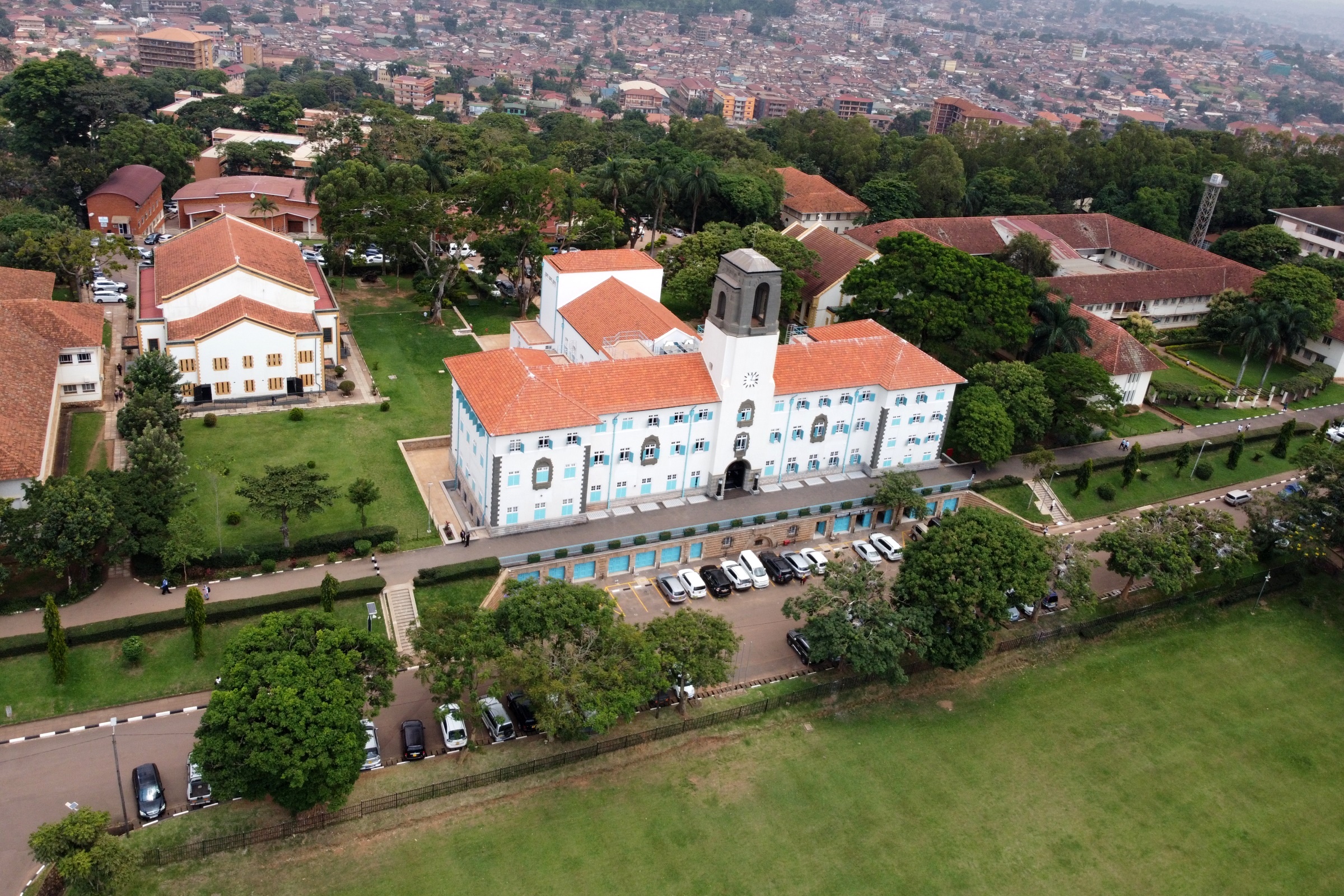
Makerere University is governed by the Universities and Other Tertiary Institutions Act, Cap 262. The University is seeking applications from suitably qualified applicants for the position of Second Deputy Vice-Chancellor. The Second Deputy Vice Chancellor holds a pivotal role in financial governance, institutional planning, and administrative leadership.
1. POSITION: SECOND DEPUTY VICE-CHANCELLOR
2. SALARY SCALE: PU2
3: DUTY STATION: MAKERERE UNIVERSITY
4. ROLE
The Second Deputy Vice-Chancellor will report to the Vice–Chancellor and shall:
- Assist the Vice Chancellor in performance of his or her functions and in that regard shall oversee the finances and administration of the University;
- Be responsible for the Planning and Development of the University and,
- Perform such other functions that may be delegated to him or her by the Vice Chancellor or assigned by the University Council.
5. PURPOSE OF THE JOB
To provide strategic leadership and ensure efficient and sound financial, human and fiscal resources management in the University.
6. DUTIES AND RESPONSIBILITIES
- Provide leadership in Strategic planning and governance, leadership and administrative experience, Human resource and performance Management, Stakeholder engagement and collaboration.
- Provide leadership in preparation and implementation of the University’s recurrent and capital budgets.
- Monitor the development and implementation of the University’s accounting procedures, manuals and other documents relating to financial control and Management as per approved financial regulations.
- Oversee income and expenditure of all income generating units of the University.
- Coordinate the production of the University-wide Financial Reports by Colleges and Units.
- Management of human resources in the University.
- Oversee the management of University Estates and Assets.
7. CANDIDATE SPECIFICATION
- Hold a PhD or any other academic doctorate.
- Be at the rank of associate or full professor level in an institution whose academic ranking is comparable with that of Makerere University as accepted by Senate.
- Be a Ugandan citizen within the age bracket of 40 to 65 years at the time of application.
7.1 Academic Qualifications
- Earned a Ph.D. or equivalent doctorate should be acceptable by Senate.
- At least five years of financial or administrative leadership experience at the level of school dean/director or higher in a higher education institution, public service, or corporate institutions.
- Supervised at least ten (10) postgraduate students (Master’s and Ph.D.) to completion. At least three of the students must be at the PhD level.
7.2 Strategic Planning and Governance
- Experience in leading large administrative teams at the level of dean or higher, demonstrating efficiency and productivity.
- Proven record in developing and executing strategic plans, aligning financial and administrative objectives with institutional goals.
- Evidence of developing and implementing financial policies that have improved financial efficiency, transparency, and risk management.
- Evidence of implementing organisational restructuring or process improvements to ensure operational efficiency.
- Ability to develop and implement institutional policies, ensuring compliance with national higher education and financial regulations.
7.3 Leadership & Administrative Experience
- Minimum 5 years of senior academic leadership in a recognized institution comparable with that of Makerere University, as accepted by Senate.
- Demonstrated experience in managing budgets exceeding UGX 500,000,000=, ensuring financial sustainability and accountability.
- Proven ability to mobilize resources, secure grants, and attract external funding to support institutional growth.
- Experience in conducting financial forecasting, cost control measures, and investment strategies to optimize institutional resources.
- Track record of leading financial audits and compliance assessments in alignment with national and international financial regulations.
- Experience in handling procurement, asset management, and infrastructure development, ensuring transparency and value for money.
7.4 Human Resource and Performance Management
- Track record of leading workforce planning, recruitment, and talent development strategies, ensuring a high-performance institutional culture.
- Experience in implementing performance-based appraisal systems, leading to improved staff efficiency and accountability.
- Proven ability to foster industrial harmony, resolving labour disputes and improving employer-employee relations.
7.5 Infrastructure Development and Resource Optimization
- Experience in overseeing capital development projects, ensuring timely delivery and cost efficiency.
- Track record of overseeing the maintenance and expansion of university facilities, enhancing institutional infrastructure.
- Proven ability to negotiate and manage contracts for outsourced services, ensuring cost-effectiveness and quality standards.
7.6 Digital Transformation and ICT Integration
- Experience in integrating ICT solutions in financial and administrative operations, improving service delivery and efficiency.
- Evidence steering the automation of financial, procurement, and HR systems, reducing paperwork and improving real-time decision making.
- Proven ability to implement cybersecurity measures that safeguard institutional financial and administrative data.
7.7 Stakeholder Engagement & Collaboration
- Demonstrated experience in building partnerships with government agencies, donors, private sector investors, and international organizations to enhance institutional funding.
- Proven ability to engage faculty, students, and staff in financial decision-making, ensuring transparency and inclusivity.
- Experience in negotiating contracts, partnerships, and collaborations that have led to financial and administrative growth.
7.8 Personal Attributes
- High level of integrity, transparency, and ethical leadership, with a record of financial prudence.
- Strong analytical, problem-solving, and decision-making skills, backed by evidence of successfully managing complex financial and administrative challenges.
- Excellent communication, negotiation, and interpersonal skills, ensuring effective stakeholder engagement.
- A visionary leader with the ability to drive financial sustainability. administrative efficiency, and institutional growth.
8. REMUNERATION
An attractive remuneration package that is in accordance with Makerere University terms and conditions of service.
9. TENURE
The Second Deputy Vice Chancellor shall hold office for a period of five years and shall be eligible for re-appointment for one more term.
10. METHOD OF APPLICATION
Interested applicants are invited to submit their application letters. The following documents shall comprise a complete application:
- A signed letter of application;
- A vision statement;
- Curriculum Vitae with contact details signed and dated by the applicant;
- Copies of required minimum number of publications;
- Certified copies of academic transcripts and certificates;
- Three (3) letters of recommendation;
- Copies of letters of appointment to leadership positions at the level of Dean of a School in a national accredited university or other academic institution;
- A copy of the applicant’s National Identity Card or passport;
- A copy of the last clearance from the Inspector General of Government or other equivalent national body;
- Referees should be advised to send confidential reference letters, addressed to the Chairperson Search Committee for the Position of Second Deputy Vice Chancellor and delivered directly to the address below by 5:00 pm on Friday 13th February, 2026;
- The references should cover the following areas: the applicant’s academic credential, experience, leadership, managerial and administrative skills and personal integrity.
Both Hardcopy and Electronic (Email) applications shall be accepted.
- Hardcopy applications: Both confidential letters and sealed applications marked “CONFIDENTIAL: POSITION OF SECOND DEPUTY VICE CHANCELLOR” should be addressed to:
SECRETARY SEARCH COMMITTEE
THE ACADEMIC REGISTRAR
MAKERERE UNIVERSITY
6TH Floor, ROOM 602, SENATE BUILDING
P.O.BOX 7062, KAMPALA, UGANDA
- Electronic media (e-mail) applications should have all the above documents scanned and emailed to search.dvcfa@mak.ac.ug by 5.00 pm East African Standard Time on Friday 13th February, 2026.
Please note that:
- Incomplete applications or applications received after the closing date and time will not be considered.
- Only shortlisted applicants shall be contacted.
- Applicants who responded to the advertisements published on 31st December 2025 (The New Vision) and 2nd January 2026 (The Daily Monitor) do not need to re-apply.
For more Information and inquiries:
Visit our website https://mak.ac.ug/search-for-dvcs OR email us on search.dvcfa@mak.ac.ug OR Call Telephone number: +256-414-532634 during working hours (between 8:00 am to 5:00 pm Monday to Friday).
MAKERERE UNIVERSITY IS AN EQUAL OPPORTUNITY EMPLOYER
Prof. Mukadasi Buyinza
ACADEMIC REGISTRAR
General
Press Statement: Makerere University Congratulates Former Staff and Students on Successful Election to Public Office
Published
1 day agoon
January 27, 2026By
Mak Editor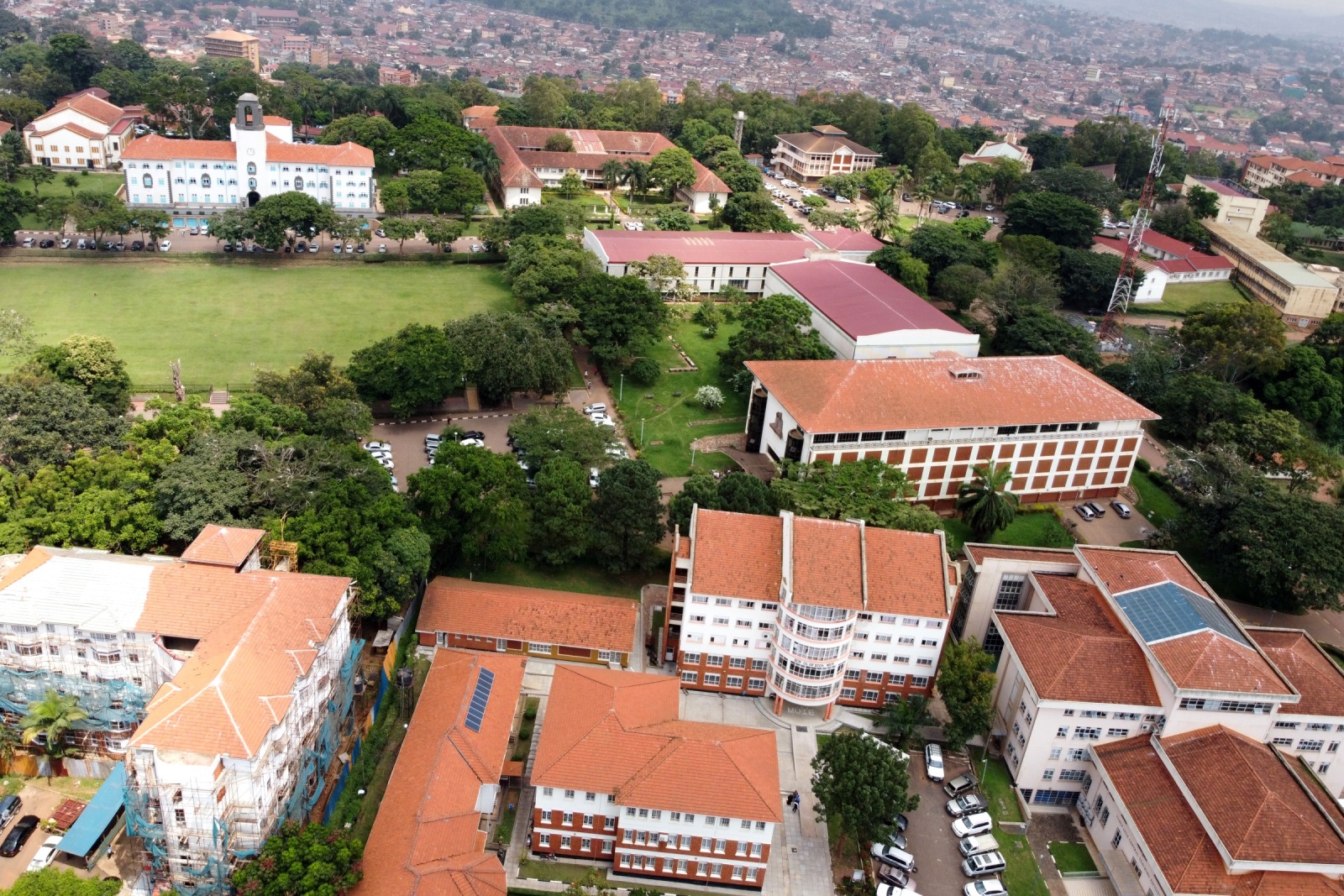
Makerere University warmly congratulates its former staff and students who emerged victorious in the 2026 national elections. Their success is a source of immense pride to the University and a strong affirmation of Makerere’s efforts to not only nurture academic excellence but also free expression and leadership. It is evidence of Makerere’s enduring impact and contribution to leadership, public service, and national development.
We are particularly pleased to recognize the following distinguished members of the Makerere University community who emerged victorious:
- Dr. Kiyonga Crispus Walter, Chancellor of Makerere University, on his election as MP for Bukonzo West.
- Mr. Kabaasa Bruce Balaba, Chair, Finance, Planning, Administration, and Investment Committee of the University Council, on his election as MP for Rubanda County West.
- Mr. Alionzi Lawrence, former Guild President of Makerere University, on his election as Lord Mayor of Arua City.
- Mr. Maseruka Robert, former Guild President of Makerere University, on his election as MP for Mukono South.
- Mr. Gyaviira Lubowa Ssebina, former Deputy Bursar of Makerere University, on his election as MP for Nyendo–Mukungwe.
- Prof. Lubega George Willy, former Staff at College of Veterinary Medicine, Animal Resources and Biosecurity (COVAB), on his election as MP for Bugangaizi South.
- Prof. Ahebwa Wilber Manyisa, former Staff at College of Agricultural and Environmental Sciences (CAES), on his election as MP for Nakaseke North.
- Hon. Adeke Anna Ebaju, former Guild President, on her re-election as Woman MP for Soroti District.
- Hon. Onekalit Denis Amere, former Guild President, on his re-election as MP for Kitgum Municipality.
- Hon. Karuhanga Gerald, former Guild President, on his re-election as MP for Ntungamo Municipality.
- Hon. Aber Lillian, former Vice Guild President, on her re-election as Woman MP for Kitgum District.
- Hon. Nyamutoro Phiona, former Vice Guild President, on her election as Woman MP for Nebbi District.
Makerere values dialogue, democracy, and responsible citizenship, and continues to make deliberate and progressive efforts to enhance participation in leadership and governance. We are confident they will serve with dedication, wisdom, and integrity.
We Build for the Future.
Trending
-

 General1 week ago
General1 week agoPress Release: Semester II Set to Start 10th Feb, 76th Graduation Dates Confirmed
-

 Innovation1 week ago
Innovation1 week agoCall For Applications: Annual Innovation Commercialisation Award
-

 General1 day ago
General1 day agoPress Statement: Makerere University Congratulates Former Staff and Students on Successful Election to Public Office
-
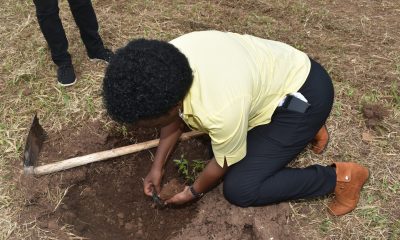
 Agriculture & Environment1 week ago
Agriculture & Environment1 week agoCall for Applications: QCF Postdoctoral Research Fellowships
-
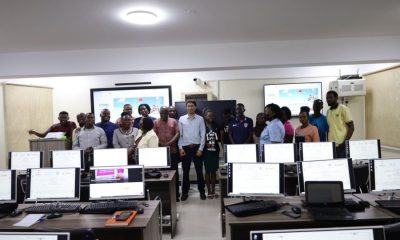
 Computing & IS1 week ago
Computing & IS1 week agoCoCIS CIPSD Short Courses Jan-Mar 2026
